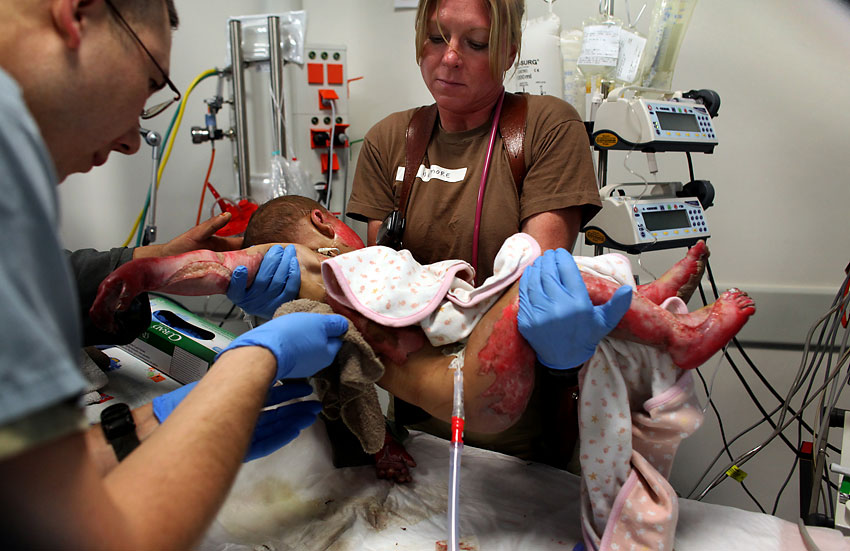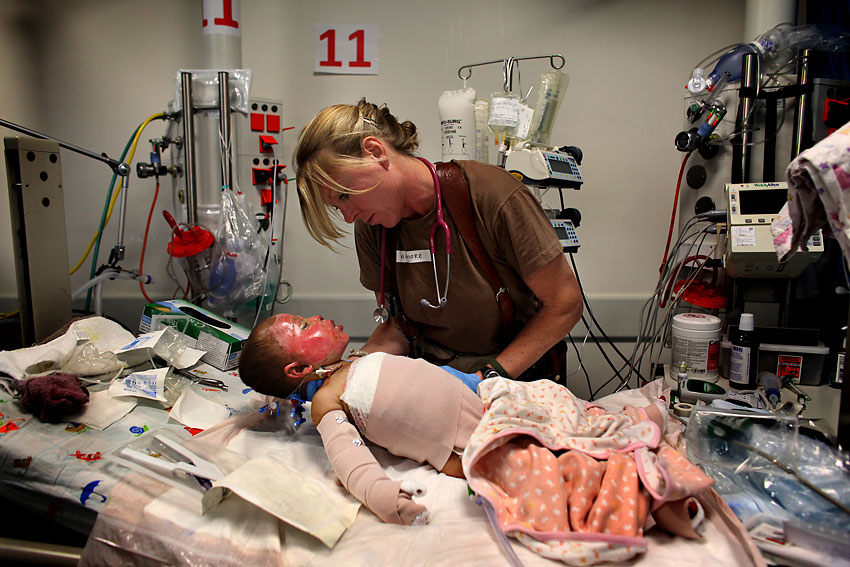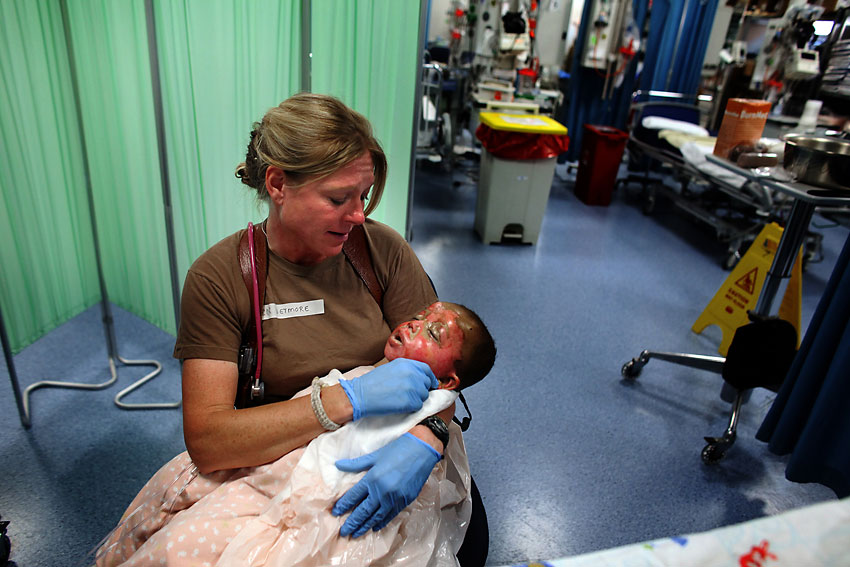BLOOD AND GRIT
Improvised explosives riddle their victims with so much dirt and debris that cleaning the wounds can take hours in the operating room. It's a painstaking job - and one that must be done right.
Improvised explosives riddle their victims with so much dirt and debris that cleaning the wounds can take hours in the operating room. It's a painstaking job - and one that must be done right.

Ali, roughly 18 months old, arrived at the hospital with severe burns over more than 60 percent of his body after a household accident. Here, moments after he was carried inside by a flight medic, a trauma team begins to assess his injuries. Doctors concluded that he would not survive.

Lt. Cmdr. Tom Shu, left, helps Cmdr. Julie Wetmore place Ali on his bed as they clean him one last time before his death.

Ali's grandfather sheds a tear for his dying grandson. At right is Cmdr. Julie Wetmore, a Navy reservist and neonatal nurse practitioner who comforted Ali in his final hours. "I expected to see the combat wounds, but I didn't expect to see this," she said.

Ali's grandfather holds his grandson for the last time, as Cmdr. Julie Wetmore comforts him.

Ali's grandfather helps Cmdr. Julie Wetmore place Ali on his bed after holding him for the last time.

A few minutes after Ali was taken off a ventilator, Cmdr. Julie Wetmore changes his bandages, even though it's not medically necessary. Ali died in Wetmore's arms a short time later.

"It's OK, it's OK," Cmdr. Julie Wetmore whispers as she fights back tears in the last minutes of Ali's life. "It makes me feel better to hold him, so he doesn't die alone in bed."

Cmdr. Julie Wetmore ties Ali's toes together a few minutes after his death. Everyone on the staff is well versed in the relevant Islamic customs. When Afghans die, they're turned to face Mecca and their big toes are tied together with cloth, as their religion prescribes.

With the help of the hospital's chaplain, Cmdr. Julie Wetmore wraps Ali in a clean sheet, as prescribed by the tenets of Islam, a few minutes after the baby's death.
No one expected this Afghan boy to survive after an IED shredded his legs and torso. Bit by bit, the hospital's healers pieced the little boy back together. Along the way, they grew deeply attached.